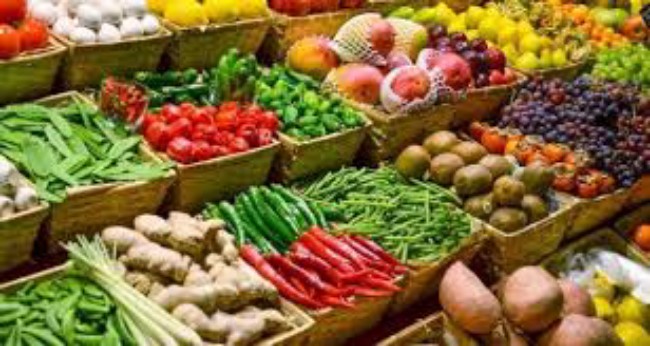Business
JUST IN: Nigeria’s inflation rate drops for 8th consecutive month, defying market reality

The National Bureau of Statistics (NBS) has revealed that Nigeria’s inflation for the eight consecutive months has dropped and now stands at 15.40% in November from 15.99% reported in October.
Whilst the sustained moderation in inflation was widely anticipated, Market reality shows nothing has changed in the last 8 months, but in fact got worse.
Not only has there been a consistent rise in price of food items, electricity, gas, and other household goods have also witnessed sustained increases of up to 50% in the last year.
In a recent publication, Ripples Nigeria had also revealed how the price of Rice- Nigeria‘s favourite staple- has jumped in the last one year.
NBS in its report showed a broad-based moderation across the inflation baskets.
On an annual basis, food inflation declined by 1.07 percent to 17.21 percent, core (inflation less seasonalities) rose by 0.46 percent to 13.85 percent, urban slowed by 0.6 percent to 15.92 percent while rural dropped by 0.59 percent to 14.89 percent.
READ ALSO: NBS discloses plans to conduct agricultural census
But, the changes were largely due to base year effects.
On a monthly basis, the all-items month-on-month inflation rate increased by 1.08 percent in November 2021, this is 0.10 percent rate higher than the rate recorded in October 2021 (0.98) percent.
Food increased by 1.07 percent in November 2021, up by 0.16 percent points from 0.91 percent recorded in October 2021, core dipped 0.46 percent when compared with 0.80 percent recorded in October 2021.
Rivers (13.36%) and Edo (13.50%) recorded the lowest inflation rates in October.
The states with the highest inflation rates were predominantly in the North – Gombe (18.54%), Jigawa (17.54%), and Nasarawa (17.43%), while Kwara (11.73%), re-emphasizing the impact of insecurity on food production.
According to the NBS, this rise in the food index was caused by increases in prices of bread and cereals, fish, food product, potatoes, yam and other tubers, oil and fats, milk, cheese and eggs and coffee, tea and cocoa.
“The average annual rate of change of the Food sub-index for the twelve months ending November 2021 over the previous twelve-month average was 20.62 per cent, 0.1per cent points lower from the waterage annual rate of change recorded in October 2021 (20.7per cent),” it said.
On state profile, NBS said food was more expensive in Gombe (21.83%), Kogi (21.09%) and Nasarawa (20.48%), while Edo (14.12%).
Rivers (14.31%) and Osun (14.45%) recorded the slowest rise in year-on-year food inflation.
“On month-on-month basis however, November 2021 food inflation was highest in Enugu (2.59%), Imo (2.31%) and Ekiti (2.01%), while Jigawa (0.27%), Ogun (0.36%) recorded the slowest rise in inflation on month on month with Akwa Ibom recording price deflation or negative inflation (decrease in the general price level of food or a negative food inflation rate),” NBS noted.
Join the conversation
Support Ripples Nigeria, hold up solutions journalism
Balanced, fearless journalism driven by data comes at huge financial costs.
As a media platform, we hold leadership accountable and will not trade the right to press freedom and free speech for a piece of cake.
If you like what we do, and are ready to uphold solutions journalism, kindly donate to the Ripples Nigeria cause.
Your support would help to ensure that citizens and institutions continue to have free access to credible and reliable information for societal development.






















